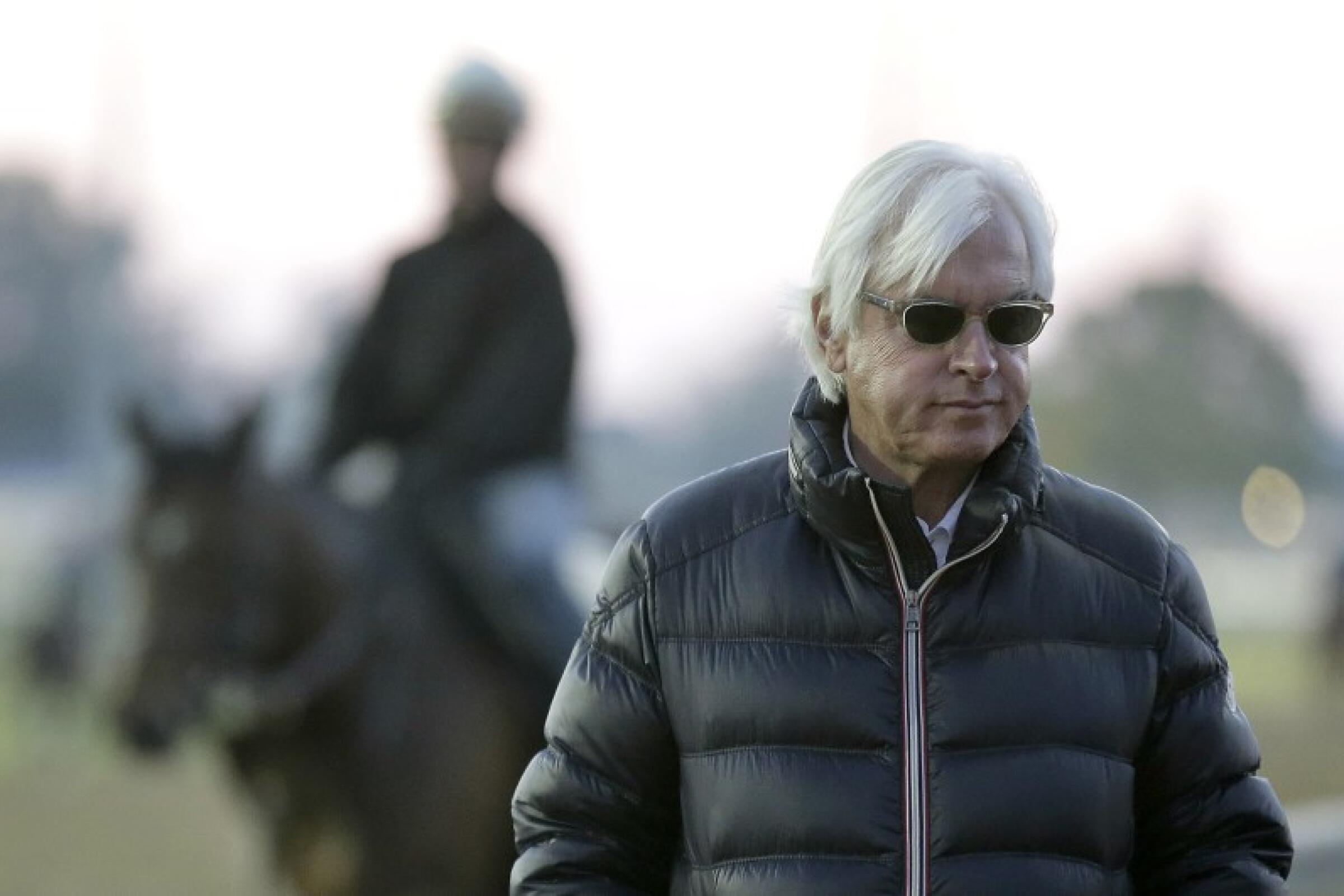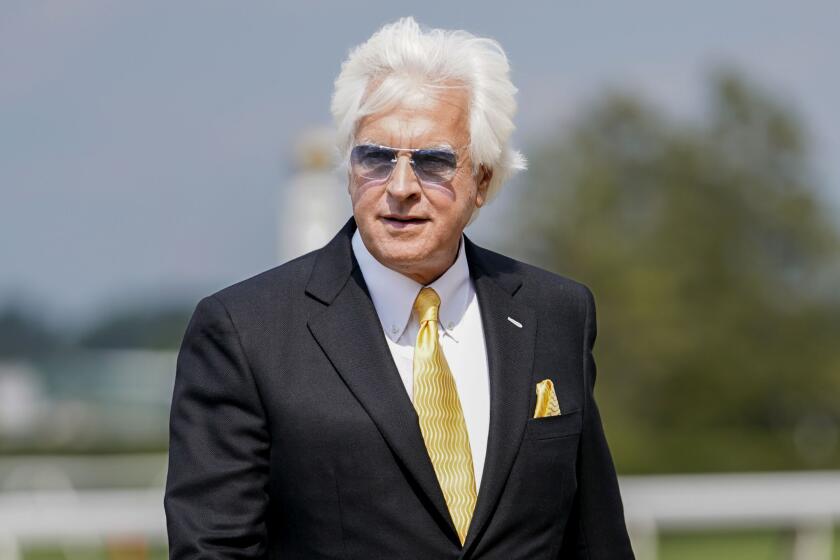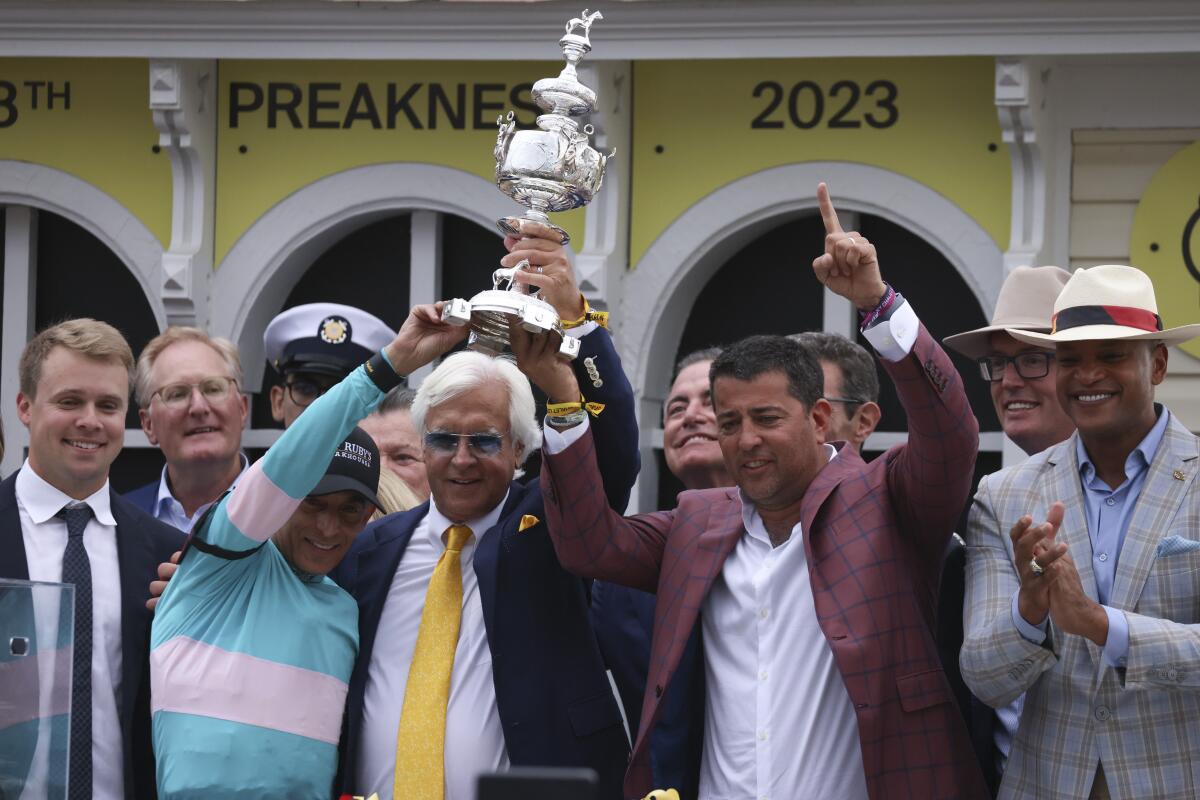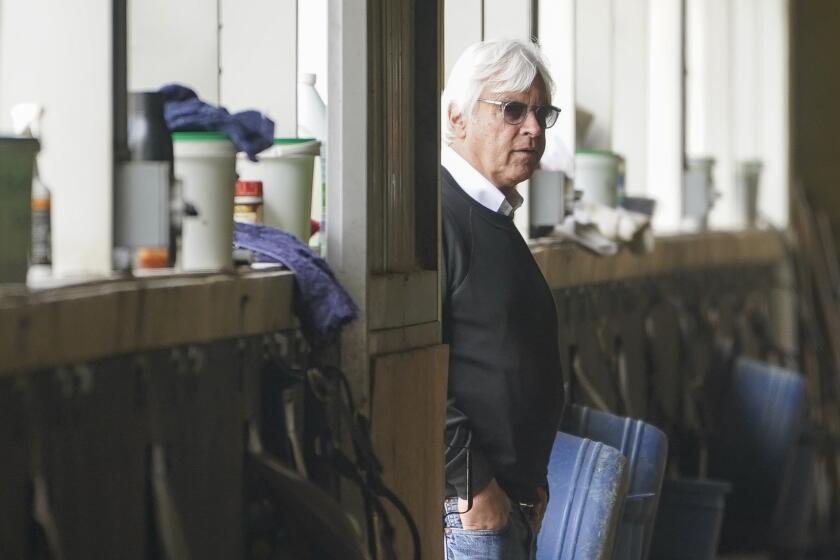Imagine having your driver’s license suspended, serving that suspension, and then being told the suspension has been extended because you haven’t admitted that you committed those driving offenses you were charged with two years ago.
Imagine heading into court and being offered a plea deal that will greatly reduce your sentence, but you have to admit you did the crime, which you believe you didn’t commit. Your heart tells you no way, but your head tells you the smart move is to not roll the dice.
Imagine a more serious crime that you might or might not have committed that has landed you in prison. You are up for parole, but the parole board believes a person has to own up to the crime they allegedly committed to get released, even if they steadfastly believe they are innocent.
These scenarios are not perfectly analogous but are close to the situation trainer Bob Baffert finds himself in after Churchill Downs Inc. extended its two-year ban on the Hall of Fame horse trainer by another 1½ years until 2025.
Baffert has not shown enough contrition or accepted responsibility, Churchill Downs says. Baffert responds: “In the interest of the sport we all love, I have made no public comments on this unfortunate episode for an extended period of time, so the suggestion that I ‘continue to peddle a false narrative’ is patently false.”
When the initial ban was announced, Churchill Downs said it was a hard two-year sentence and that it would be evaluated at the end of this year’s Derby meeting. And its decision was to extend.
As with most everything surrounding this two-year battle of wills and personalities, more questions than answers remain. Here are some of them.












